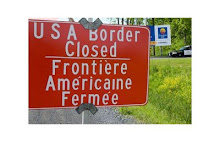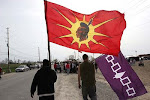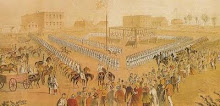
STATEMENT OF THE UNITED STATES POSTAL SERVICE
BEFORE THE
NEW YORK STATE
SENATE STANDING COMMITTEE ON
INVESTIGATIONS AND GOVERNMENT OPERATIONS
October 27, 2009
The United States Postal Service appreciates the opportunity to report to you on the measures we have taken, in cooperation with federal, state, and local law enforcement officials, to address the matter the Committee has advised us about regarding the distribution of cigarettes through the U.S. mail for which state taxes are ultimately not paid. We affirm unequivocally that the Postal Service has no intention of serving as a vehicle to further illegal activity. We also hope to assist the Committee in its important work by providing a more complete picture of the complexities surrounding this matter.
Initially, it is important to note that, under current law, cigarettes and tobacco products are legal and mailable matter and, therefore, the mailing of cigarettes and other tobacco products is not illegal. In general, the Postal Service is required by law to provide delivery service to the American public when mailable matter is properly presented and the appropriate postage is paid. In that regard, the Postal Service is subject to the statutory nondiscrimination principles of Title 39, U.S. Code, which prevent us from unduly discriminating against users of the mails. Thus, the Postal Service simply cannot deny its services to Postal Service customers on a discretionary basis.
The Postal Service is also mindful of the sanctity and security of the mail, upon which all users of the mail place great value. Generally, the contents of a mailpiece can only be determined by opening and inspecting its contents. Mailable matter sent using First-Class Mail, Priority Mail, or Express Mail service is subject to requirements that it be sealed against inspection. A federal search warrant obtained pursuant to Rule 41 of the Federal Rules of Criminal procedure, or the consent of the sender or addressee, is a prerequisite to opening mail sealed against inspection. Therefore, for these types of mail, a federal search warrant or consent of the sender or addressee would be needed to open the mailpiece.
There are also a number of practical limitations on our conduct about which this Committee should be aware. First, as the Jenkins Act has been explained to us, the cigarette excise taxes which are required to be paid are not reported to the destination states at the time the cigarettes are mailed; rather, reports of sales may be reported to the destination states well after the shipment is delivered. The Postal Service respectfully suggests that postal employees have no way of ascertaining whether the required taxes have been or will be paid when the mail is entered, nor do we believe that the Postal Service should have a role in making those determinations.
Further, even assuming that the Postal Service could seek to prevent certain customers from tendering mail containing cigarettes for which taxes will ultimately not be paid, because mail matter is usually entered in the absence of a contractual relationship with the sender, mailers can circumvent any such restrictions by simply tendering mail sealed against inspection and claiming it contains contents other than cigarettes (e.g., cigars, rolling paper, novelties, etc.) or by redirecting the mail through a third-party intermediary.
One additional challenge for the Postal Service concerns the allocation of resources. Nationwide, the Postal Inspection Service, which is the law enforcement arm of the Postal Service, has approximately 1,450 inspectors. Their work involves a broad range of activities such as protecting Postal Service employees and property, narcotics trafficking, child pornography, explosives in the mail, mail theft, and exploitation of the elderly through mail fraud. The Postal Inspection Service also responds to thousands of incidents each year involving unknown substances found in the mailstream, which is not taken lightly in the aftermath of the fatal Anthrax attacks of 2001. While we understand the State of New York has significant concerns with regard to the collection of taxes for cigarettes sold to purchasers within the state, we must balance the Postal Service’s resources directed at this activity in light of many other pressing priorities.
Notwithstanding these complexities, the Postal Service is committed to working with state, local, and federal officials to combat illegal tobacco transactions. The Postal Service has taken several steps using our existing authority to address this issue, such as issuing an internal policy on dealing with business customers who mail cigarettes, information sharing with foreign posts, and collaborating with ongoing law enforcement initiatives to prosecute illegal activity.
Recently, the Postal Service re-issued its internal policy titled, "Dealing with Business Customers Mailing Cigarettes." The document was disseminated to our sales and customer service employees and instructs them to adhere to the policy when dealing with mailers of cigarettes. The policy states that the Postal Service cannot knowingly permit the mails to be used to further activities deemed unlawful by state and federal authorities concerning the distribution of untaxed cigarettes. In that regard, if a Postal Service employee acquires reliable information (such as information from law enforcement, copies of the mailers’ solicitations, or website promotions) that a mailer is using the mails to send cigarettes to consumers for which no destination state excise tax is paid the employee is instructed to do the following:
• Refrain from soliciting new business from the mailer.
• Refrain from placing routine sales calls or making site visits to the mailer.
• Refer any inquiries by the mailer about the acceptability of untaxed or undertaxed cigarettes to the Pricing and Classification Service Center (PCSC).
• Advise the Division of the Inspection Service serving their area if they acquire information about routine shipments of untaxed or undertaxed cigarettes to consumers.
Another step the Postal Service took was to collaborate with experts from the Federal Bureau of Alcohol, Tobacco, Firearms and Explosives (ATFE), Federal Trade Commission (FTC), Customs and Border Protection (CBP), State Department, and Treasury Department in the development of a comprehensive listing of relevant restrictions on the importation of cigarettes into the United States. We led the effort on this initiative because state attorneys general and federal law enforcement officials had previously provided information demonstrating that there had been considerable growth in unlawful cigarette sales and importation practices associated with cigarettes shipped from abroad.
As a result of the collaboration with other agencies, in April 2006, the United States was able to distribute a circular to postal administrations throughout the world to enable them to educate their customers about the requirements for sending cigarettes to the United States. The circular explains that the importation of cigarettes into the United States is generally prohibited, and that imported cigarettes would be subject to forfeiture and destruction. It also contains detailed descriptions of importation requirements.
A permanent record of these restrictions is now contained in our prohibited items country listing, which foreign posts use to identify prohibitions for traffic destined to the United States. We believe that by updating the listing, we may stem some illegal traffic from abroad, thereby aiding law enforcement and tax collection agencies.
On another front, the Postal Service routinely cooperates with federal and state law enforcement officials to reduce illegal cigarette and tobacco sales and facilitate the prosecution of such activity. For several years, we have had a series of meetings and correspondence with the state attorneys general, individually and through the National Association of Attorneys General (NAAG), in which we exchanged information on the scope of the problem and discussed ways of working together to address illicit sales of cigarettes.
We have had similar interactions with the Justice Department and have participated in dialogues with U.S. Attorneys, the ATFE, and others to develop strategies for dealing with illegal tobacco sales. The following summaries describe how we have worked with these entities and other officials to facilitate enforcement:
• In 2006, Postal Inspectors worked with the ATFE and Internal Revenue Service (IRS) to investigate a scheme involving cigarette taxes. The investigation determined that the scheme ran from 2002–2007. The defendant in the matter defrauded the States of New York, Rhode Island, Illinois, Pennsylvania, and Arizona by unlawfully distributing cigarettes that came from the Seneca Nation in New York State. In July 2008, the defendant entered a plea to information in U.S. District Court, Western District of New York, and is scheduled to be sentenced in January 2010. In this case, a list of the cigarette purchasers was provided to New York tax officials. Based on the information shared with State authorities, the City of New York filed a civil complaint in United States District Court for the Southern District of New York against the promoter (City of New York against Lloyd Long, No. 08-CV-9052). On March 12, 2009, a Judgment and Order of Default was entered against the promoter in the amount of $1,311,390.
• In an investigation in New Jersey, Postal Inspectors discovered that individuals had used postal money orders to purchase $4.5 million worth of cigarettes, structuring the transactions to avoid detection by state tax officials. The targets of the investigation purchased cigarettes over the Internet from Indian reservations in New York, transported the cigarettes to New Jersey, and sold them in restaurants and stores in New Jersey without paying the state sales tax. The Postal Inspection Service served as the lead agency on the investigation, cooperating with the ATFE, New Jersey Department of Tax and Finance, New Jersey State Police, and IRS. In 2007, five individuals were arrested and charged with money laundering, as well as violations of the Jenkins Act.
• The Postal Inspection Service referred the activities of three members of one family to the Massachusetts Attorney General’s office which ultimately led to a Grand Jury indictment in September 2009. The family members allegedly evaded paying Massachusetts excise tax by illegally selling unstamped cigarettes. The Postal Inspection Service had tracked a shipment from a Seneca Nation tobacco distributor to one of the family members. The joint investigation in this case also involved assistance from the Massachusetts Department of Revenue (MDOR) and ATFE. In August 2008, the joint investigation executed search warrants that seized more than 12,000 cigarettes in packs that were not properly marked with state excise tax stamps. It is estimated that the alleged activities defrauded Massachusetts of nearly $163,000 in unpaid cigarette excise taxes.
• In another case, the Postal Inspection Service along with ATFE and MDOR, provided assistance to the Massachusetts State Police assigned to the Attorney’s General’s office by executing search warrants in January of 2009. This resulted in seizure of a shipment of unstamped cigarettes that were sent to a convenience store retailer from the Seneca Nation. In September 2009, the retailer was indicted by a Grand Jury for knowingly selling cigarettes that were not properly stamped with the Massachusetts excise tax between September 2007 and January 2009. It is estimated that the retailer defrauded Massachusetts of over $150,000 in unpaid taxes.
The Postal Inspection Service has provided similar assistance to law enforcement agencies on other cases in New York and New Jersey, which are the two busiest states for these activities, as well as in Alaska, Pennsylvania, and Texas. The Postal Inspection Service has a number of other ongoing investigations that involve untaxed cigarettes obtained from Native American reservations as well as counterfeit cigarettes being imported into the United States.
In closing, be assured the Postal Service remains committed to collaborating with law enforcement to deal with the problem of distribution of untaxed cigarettes through the mail. Within our existing authority and resources, we have taken steps to assist ongoing law enforcement efforts and will continue to do our part.








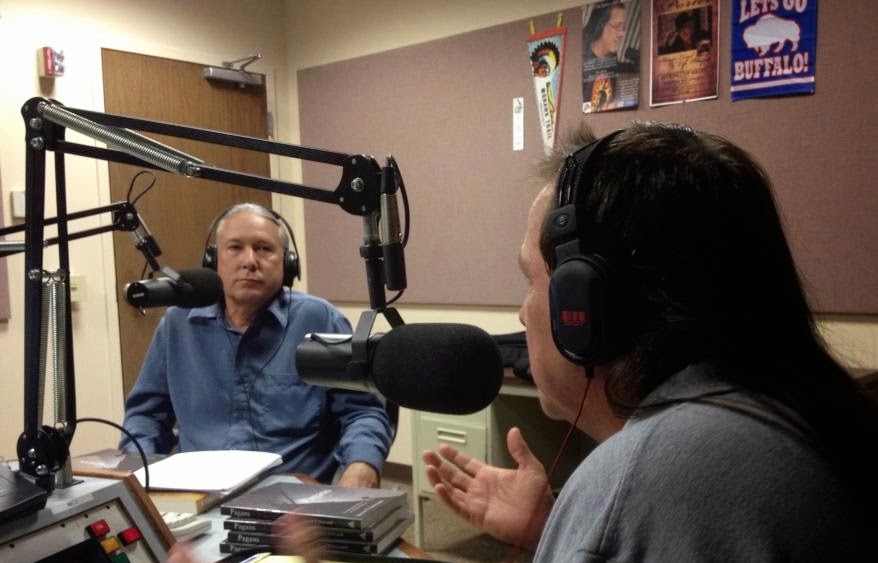


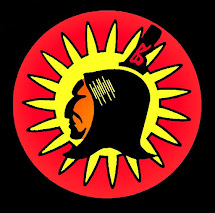




![-[]-[]-/\-[]-[]-](http://3.bp.blogspot.com/_9BsJ9GiICek/SkDblxnV3yI/AAAAAAAAAwI/pxLRna3rvw8/S214/29-03-A-voice-from-the-Akw-.jpg)
